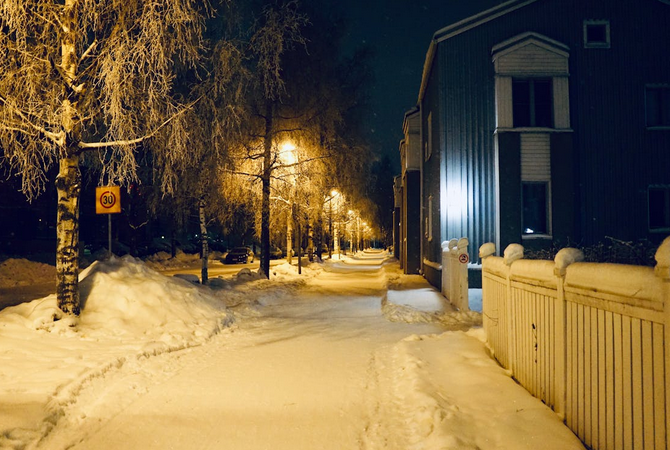
Winter, although brings a lot of memories, also sets challenges for homeowners, especially when it comes to fences. Snow and ice can wreak havoc on your outdoor structures if you’re not careful. That’s where Fence Armor steps in—your winter defense against the elements. You can learn more about it at https://www.khedmeh.com/wall/blogs/user/FenceArmor.
This innovative solution is designed to protect your fence from moisture absorption, ground contact issues, and even those pesky salt and de-icing chemicals that seem to pop up everywhere during cold months. So read on. Here’s how Fence Armor works wonders in safeguarding your fence this winter.
Blocks Moisture Absorption
Moisture is a silent enemy during winter. It seeps into wood fences, causing them to swell and warp over time. This can lead to significant structural problems that are costly to repair. Fence Armor acts as a protective barrier against this moisture intrusion. By wrapping the base of your fence posts, it prevents water from soaking in. This means no more rotting or deteriorating wood. The material used in Fence Armor is designed specifically for durability and efficiency. It doesn’t just block moisture; it also allows for drainage, ensuring that any trapped water can escape easily. This simple yet effective solution keeps your fence looking great season after season.
Eliminates Ground Contact
Minimizing ground contact is crucial. Ground moisture can be a significant threat during winter months. Snow accumulation and melting ice create a damp environment that weakens wood and metal alike. By using Fence Armor, you elevate your fence above the soil line. This barrier effectively creates space between the fence posts and the wet ground below. As a result, water won’t seep into materials as readily. This added protection means less chance of rot or rust setting in over time. You’ll find that this simple adjustment can dramatically extend the life of your fencing investment. Keeping your posts dry not only preserves their integrity but also enhances overall stability throughout harsh weather conditions.

Resists Salt & Chemicals
Winter brings snow, ice, and the inevitable use of de-icing chemicals. While these substances make our roads safer, they can wreak havoc on your fence. Salt is particularly damaging. It seeps into wood or metal fences, causing corrosion and decay over time. This deterioration not only compromises structural integrity but also affects aesthetics. Fence armor acts as a protective barrier against these harsh elements. Its resilient material shields the fence from chemical exposure. By preventing direct contact with salt and other corrosive agents, it helps maintain both functionality and appearance throughout winter months. Investing in this protection means fewer repairs in the spring.
Minimizes Mold & Mildew Growth
When winter brings snow and ice, these conditions can become a problem for your fence. Moisture often seeps into the wood, creating an ideal breeding ground for unwanted growth. Using Fence Armor helps combat this issue effectively. By providing a barrier against moisture absorption, it reduces the likelihood of mold taking hold. The protective layer keeps water from penetrating deep into the material. Additionally, by elevating the base of your fence above ground level, you minimize contact with wet soil. This further decreases moisture accumulation around vulnerable areas. With less moisture trapped in or around your fencing materials, you create an inhospitable environment for mold and mildew to flourish.
Investing in fence armor is a smart choice. With all these advantages combined, it’s clear that winter-proofing your fence with high-quality armor is an investment worth making for any homeowner looking to protect their property year-round.
